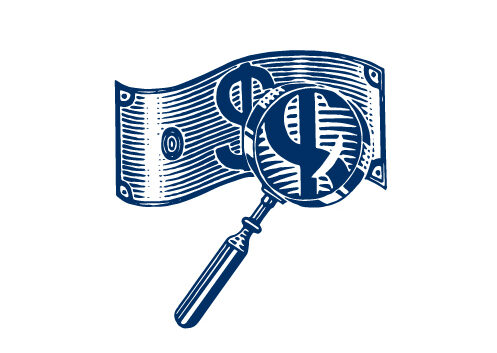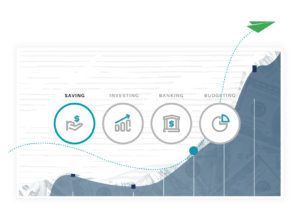Details Are Part of Our Difference
Embracing the Evidence at Anheuser-Busch – Mid 1980s
529 Best Practices
David Booth on How to Choose an Advisor
The One Minute Audio Clip You Need to Hear
Tag: investment strategy
Hey, Hill: Should I Consider a Roth Conversion?

At Hill Investment Group, we’ve found that when a few clients ask similar questions, many more are likely thinking the same thing. To better serve you, we’re introducing our “Hey Hill” newsletter series—addressing common client questions and sharing our perspective.
To submit a question for a future post, email us at service@hillinvestmentgroup.com
Is a Roth IRA Conversion Right for You?
Roth IRA conversions can be a valuable, but often misunderstood tool in long-term financial planning. When thoughtfully timed and executed, they may provide tax advantages, increased flexibility, and legacy planning benefits. But like most financial strategies, they’re not one-size-fits-all.
So how do you know if a Roth conversion might make sense for your situation?
What Is a Roth Conversion?
A Roth IRA conversion means moving money from a pre-tax retirement account—such as a Traditional IRA—into a Roth IRA. You’ll pay ordinary income taxes on the converted amount in the year of the transfer. From that point forward:
- Your investments may grow tax-free inside the Roth
- You can make tax-free withdrawals in retirement (if IRS rules are followed)
In essence, you’re trading a tax bill today for the potential of tax-free growth and withdrawals in the future.
Who Might Want to Consider a Conversion?
A Roth conversion may be worth exploring if:
- You expect to be in a higher tax bracket later
- You can pay the tax bill from non-retirement assets, leaving your retirement funds intact
- You’re in a temporarily low-income year (e.g., early retirement, career break, or sabbatical)
- You’re planning for heirs—Roth IRAs aren’t subject to required minimum distributions (RMDs), which may make them attractive in legacy planning
- You don’t need the money soon—the longer Roth funds grow tax-free, the more powerful the benefit
How It Can Support Your Long-Term Plan
When aligned with your overall strategy, a Roth conversion can:
- Reduce future RMDs and lower taxable income in retirement
- Diversify your tax “buckets,” giving you flexibility in how you draw income
- Potentially ease your heirs’ future tax burden by leaving them tax-advantaged assets
- Help you build more predictable after-tax income over time
It’s a classic example of playing the long game—something we believe in deeply at Hill.
When It Might Not Make Sense
A Roth conversion isn’t ideal for everyone. It may not be the right move if:
- You’d need to use retirement funds to pay the conversion tax
- You’re already in a high tax bracket and expect it to be lower in the future
- You’ll need access to the converted funds within five years (each conversion starts a separate 5-year clock for penalty-free withdrawals)
The Bottom Line
Roth conversions can be powerful, but the decision is nuanced. The tax rules are complex. The upfront cost can be significant. And timing matters.
That’s where we come in. Through our advisory relationships, we help clients model the long-term impact of a Roth conversion—year by year—so they can move forward with clarity and confidence.
At Hill, we don’t just focus on what’s smart today. We help you make decisions that align with your long-term goals and legacy.
Thinking about a Roth conversion? Let’s explore whether it’s a fit—for your plan, your family, and your future.
Disclosures:
Hill Investment Group is an SEC-registered investment adviser. Registration does not imply a certain level of skill or training. The information provided is for educational purposes only and should not be construed as personalized investment, tax, or legal advice. Roth IRA conversions involve complex tax considerations and may not be appropriate for all investors. Consult your tax advisor or financial professional before implementing any financial strategy. Investing involves risk, including the possible loss of principal. Past performance is not indicative of future results.
Smart Tax Moves in Retirement
 When you’re working, the focus is often on what you earn from your investments. But in retirement, what you keep after taxes can matter even more.
When you’re working, the focus is often on what you earn from your investments. But in retirement, what you keep after taxes can matter even more.
That’s why the order in which you withdraw from your investment accounts can have a meaningful impact. It may influence how much you pay in taxes, how long your portfolio lasts, and even what you’ll pay for Medicare premiums.
Here’s a general framework that financial professionals often consider when building tax-aware withdrawal plans:
- Start with taxable accounts. These are brokerage or investment accounts where taxes have already been paid on contributions. Selling investments from these accounts may trigger capital gains, which are often taxed at lower rates than ordinary income.
- Then consider tax-deferred accounts. Withdrawals from traditional IRAs and 401(k)s are taxed as ordinary income. By spreading these distributions over time, you may reduce the chances of being bumped into a higher tax bracket later.
- Preserve Roth IRAs for later. Roth accounts grow tax-free, and withdrawals are generally tax-free in retirement. Plus, Roth IRAs aren’t subject to required minimum distributions (RMDs), making them a valuable tool for later-life needs or legacy planning.
A Hypothetical Example
Imagine a retired couple, Elaine and Bill. They have a mix of taxable, tax-deferred, and Roth accounts. After reviewing their situation and long-term goals, a strategy was developed that began with their taxable assets, incorporated modest distributions from their IRA to manage future tax exposure, and left their Roth IRA intact for later.
This approach helped them create a more predictable tax picture and supported their long-term planning objectives.
Tailored to You
Of course, the best strategy depends on your personal circumstances—things like your income needs, tax bracket, account types, family or charitable goals, and how markets perform over time.
That’s why we take a collaborative and proactive approach. At Hill, we coordinate closely with your tax professionals and use evidence-based planning tools to help ensure your withdrawals are as tax-efficient as your investments are intentional.
Want to explore your retirement income strategy or review your current plan? We’re here to help—and to take the long view with you.
Hill Investment Group does not provide tax or legal advice. You should consult with a qualified tax professional regarding your individual circumstances.
Compounding Wisdom: 101 Saving

This is the latest in our series of introductory “101” financial guides. Each guide reveals a set of wise actions as well as a set of behaviors to avoid. The goal? Help you make smart choices at every turn in your financial road trip. Your financial success can be exponentially enhanced when you make wise financial decisions repeatedly over a long period. This month’s focus is Saving. You will increase your chances of financial security if you start saving early, contribute regularly, and live within your means. It all starts with having a savings plan.
Compounding Wisdom: Saving
Compound Wisdom Actions
- Set an Annual Savings Target – strive to save or invest at least 20% of your income each year.
- Be Intentional – your savings plan should establish priorities among retirement, education for kids, large purchases, and investments.
- Act Now – too often, we procrastinate due to loans or large purchases but remember that your most valuable dollar is the last one saved, and no amount is too small.
- Auto “Pay Yourself First” – enforce discipline using automated transfers from checking into savings and investments accounts.
- Prepare for Emergencies – don’t invest until you have sufficient liquid savings to pay for 3-6 months of living expenses.
- Plan for Large Purchases – define your next large purchase (what, when, and how much) and then save methodically each month.
- Keep Life Simple –avoid buying things that complicate your life and add unnecessary costs; more can be less.
- Save With Purpose – each dollar should be saved or invested with a purpose in mind so you can apply appropriate risk.
- Use Credit Wisely – remember that using credit means spending money today that you may not have yet earned.
- Zero the Balance – pay off all credit card balances each month; making a mid-month partial payment will likely raise your credit score.
Actions to Avoid:
- I Can’t Resist – Purchasing large items without a plan.
- C’est la vie – Living a lifestyle that prevents you from saving/investing 20% of your income.
- I’ll Start Next Year – Delaying savings due to lack of discipline or debt payments.
- That’s All I Had to Do – Only paying the minimums on credit card bills or other loans.
- Robbing Peter to Pay Paul – Using your checking account or credit card to fund emergencies or tapping your retirement accounts.
- But It’s an Emergency – Using your emergency fund for non-emergency spending.
- Scared Money Don’t Make Money – Don’t be risk averse when you are young; you are a time billionaire, so leverage it.
Feel free to pass this along if you know someone who might benefit from the guidance and look for more from me in this monthly series.
I lead our Hillfolio-level client service and planning efforts; learn more about me here and reach out if I can help you put the magic of compounding on your side.

